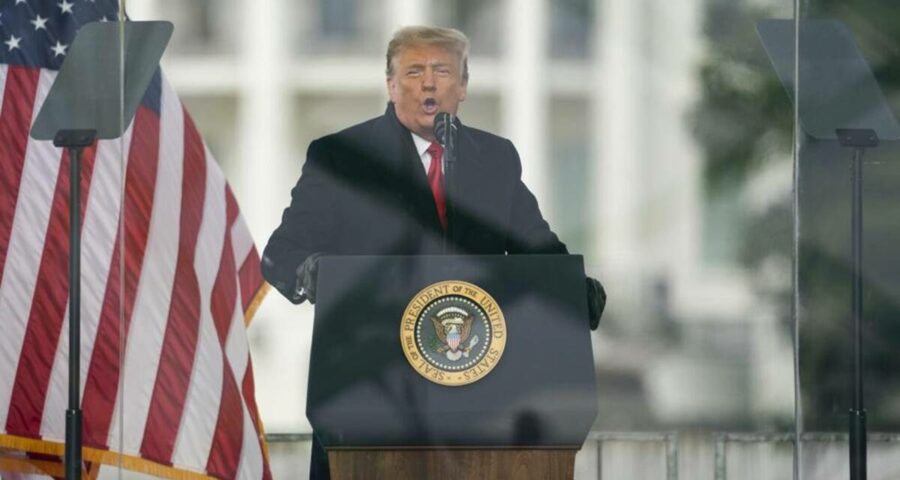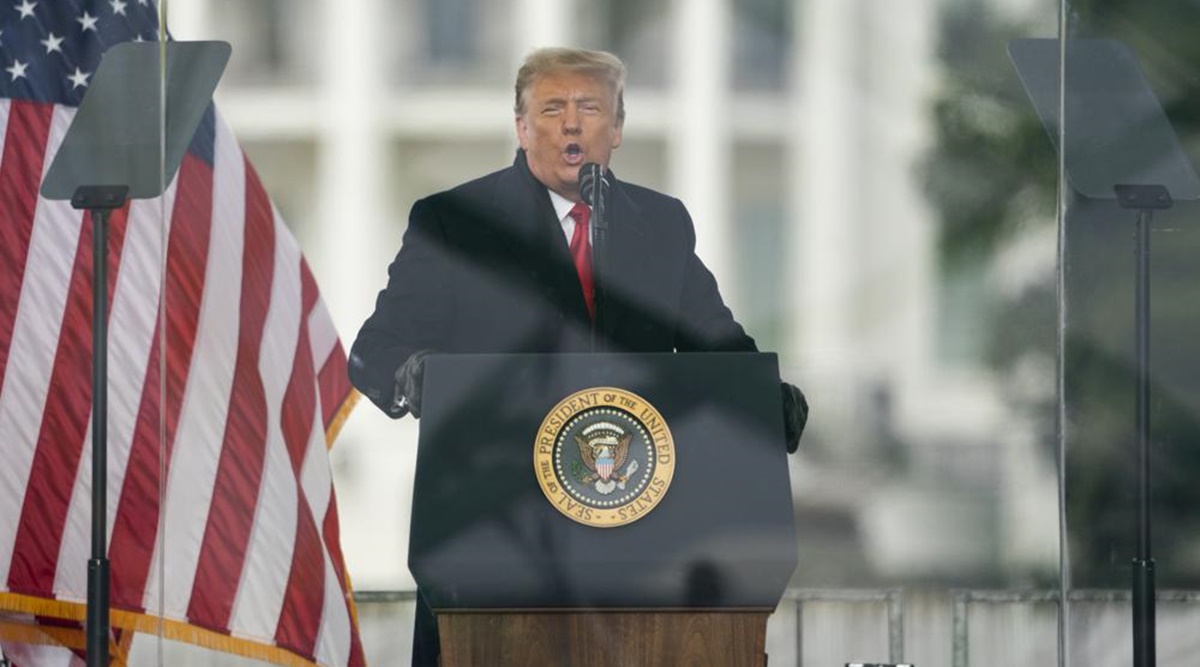Trump is still very much invested in his own false claims about the 2020 election, pushing local Republican officials to audit their ballots and voting machines while trumpeting the phony idea that any election that Democrats win is a fraud.
Written by Reid J. Epstein
Last week, during a 51-minute interview on “The John Fredericks Show,” a radio program syndicated across Virginia, former President Donald Trump dodged a half-dozen opportunities to say whether he is planning to run for president once again in 2024.
Fredericks, who alongside his radio gig also served as a chairman of Trump’s campaigns in Virginia, began questions with “If you’re inaugurated as president again in 2025,” and “I think you’re going to run and win in 2024.” He asked, “How many seats do the Republicans have to win in 2022 to inspire you to run in 2024?”
Hard-hitting journalism this was not.
Still, it did cut to the heart of the biggest question in Republican politics: When will Trump announce his plans for 2024?
For months, the best working theory had been that he would wait as long as possible, both to freeze the rest of the potential 2024 Republican field and to keep as much attention as possible on himself, his endorsements and political proclamations.
In the meantime the former president has not found any new outlet for his political attention. There’s no library in the works or legacy project like President Barack Obama’s nonprofit group Organizing for Action (which itself shuttered in 2018 after fading into obsolescence). Trump is still very much invested in his own false claims about the 2020 election, pushing local Republican officials to audit their ballots and voting machines while trumpeting the phony idea that any election that Democrats win is a fraud.
All of that puts him on the same page as much of today’s Republican electorate.
“If Donald Trump runs in ’24, I think he’ll clear the field, be the nominee and I think he wins handily against Biden or Harris,” said Rep. Jim Banks of Indiana, who as the chairman of the conservative Republican Study Committee has hosted almost every potential non-Trump candidate to speak to his group of more than 150 Republican House members this year.
Banks is hardly agnostic on the subject of Trump. His Capitol Hill office is filled with Trump memorabilia, including a framed front page of The Washington Post from the day after the former president’s first Senate acquittal on impeachment charges, autographed by Trump himself. In January he voted against accepting the results of the election, and in July he was one of two Republicans whom House Speaker Nancy Pelosi refused to seat on the commission investigating the Jan. 6 attack on the Capitol. He has on his staff the son of Tucker Carlson, one of the most vocal pro-Trump hosts on Fox News.
In our conversation Monday afternoon, Banks, who said he was in weekly contact with Trump, said he hadn’t directly discussed if or when the former president might begin a 2024 campaign. He hadn’t been told by Trump, as Rep. Jim Jordan, R-Ohio, said last week in an exchange recorded by a hidden camera, that the former president was “about ready” to announce another campaign.
All that leaves the field of would-be Republican presidential candidates frozen. Those taking steps that could lead to a 2024 run include Govs. Ron DeSantis of Florida and Kristi Noem of South Dakota; Sens. Tom Cotton, Ted Cruz and Marco Rubio; and former Trump Cabinet members Mike Pompeo and Nikki Haley. They each owe varying levels of political allegiance to Trump; polling shows none of them would be much of a threat to dent Trump’s hold on the party even if they tried.
At the same time, Democrats, fretting about President Joe Biden’s sagging standing in public opinion polls after the messy withdrawal from Afghanistan, would generally be thrilled to make what is shaping up to be a challenging midterm election next year a referendum on Trump. The president’s party almost always loses dozens of seats in the House during the midterms; Democrats picked up 41 seats in 2018 and Republicans flipped 63 in 2010.
This article originally appeared in The New York Times.
Source: Read Full Article


